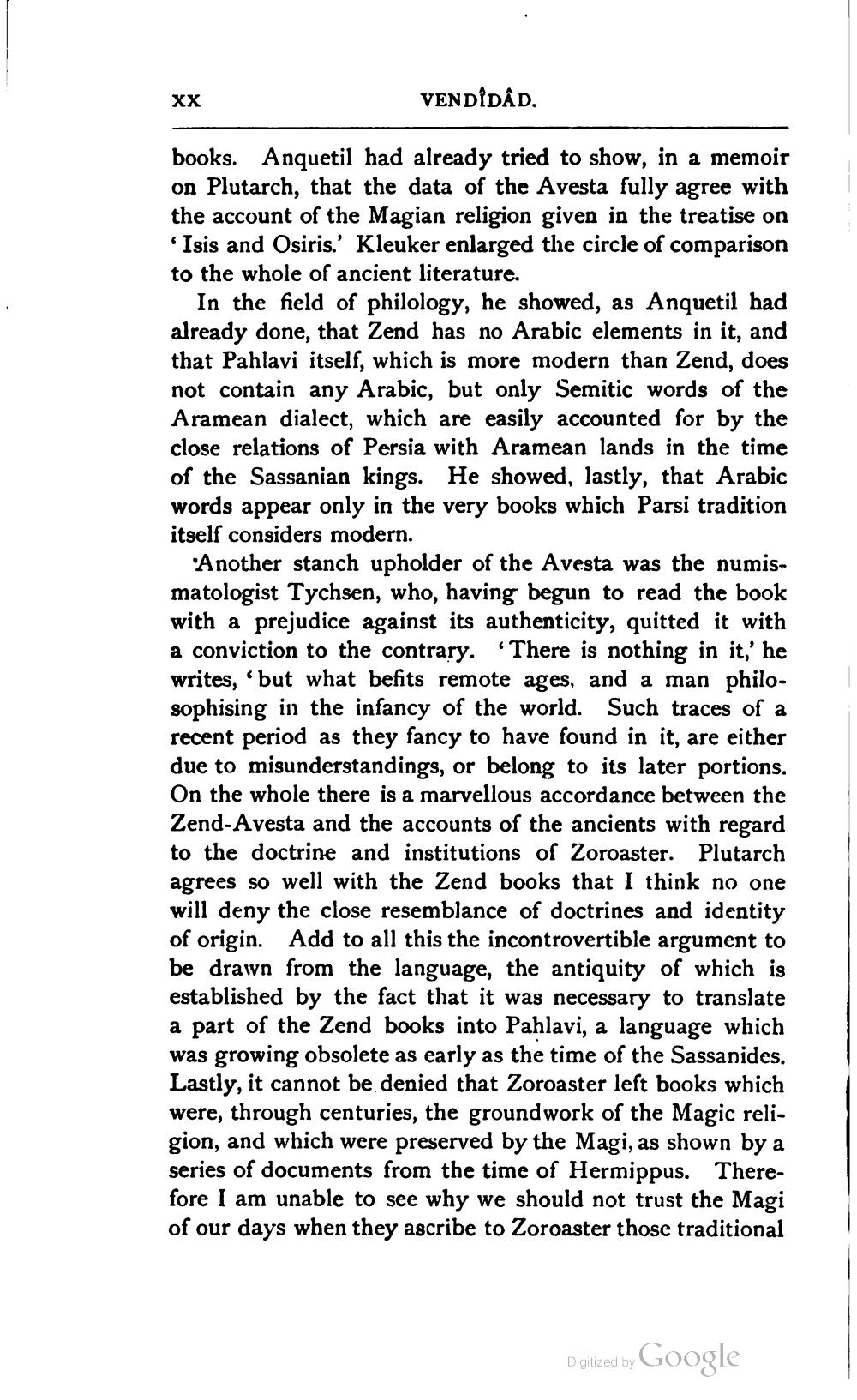________________
XX
VENDIDÂD.
books. Anquetil had already tried to show, in a memoir on Plutarch, that the data of the Avesta fully agree with the account of the Magian religion given in the treatise on
Isis and Osiris.' Kleuker enlarged the circle of comparison to the whole of ancient literature.
In the field of philology, he showed, as Anquetil had already done, that Zend has no Arabic elements in it, and that Pahlavi itself, which is more modern than Zend, does not contain any Arabic, but only Semitic words of the Aramean dialect, which are easily accounted for by the close relations of Persia with Aramean lands in the time of the Sassanian kings. He showed, lastly, that Arabic words appear only in the very books which Parsi tradition itself considers modern.
Another stanch upholder of the Avesta was the numismatologist Tychsen, who, having begun to read the book with a prejudice against its authenticity, quitted it with a conviction to the contrary. "There is nothing in it,' he writes, but what befits remote ages, and a man philosophising in the infancy of the world. Such traces of a recent period as they fancy to have found in it, are either due to misunderstandings, or belong to its later portions. On the whole there is a marvellous accordance between the Zend-Avesta and the accounts of the ancients with regard to the doctrine and institutions of Zoroaster. Plutarch agrees so well with the Zend books that I think no one will deny the close resemblance of doctrines and identity of origin. Add to all this the incontrovertible argument to be drawn from the language, the antiquity of which is established by the fact that it was necessary to translate a part of the Zend books into Pahlavi, a language which was growing obsolete as early as the time of the Sassanides, Lastly, it cannot be denied that Zoroaster left books which were, through centuries, the groundwork of the Magic religion, and which were preserved by the Magi, as shown by a series of documents from the time of Hermippus. Therefore I am unable to see why we should not trust the Magi of our days when they ascribe to Zoroaster those traditional
Digitized by Google




